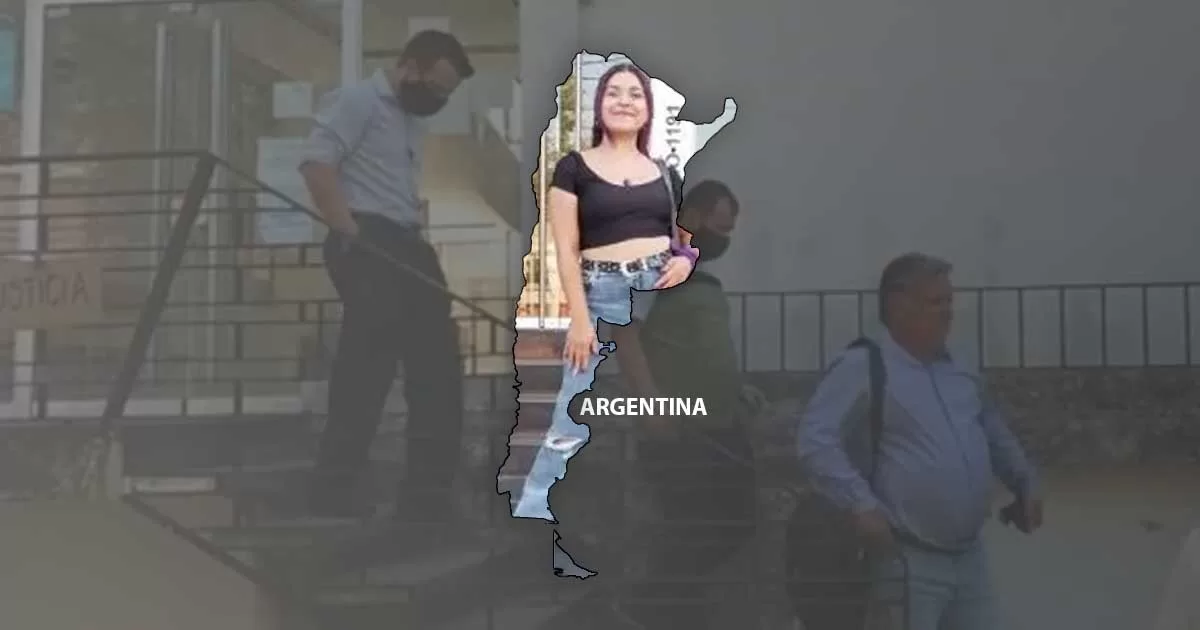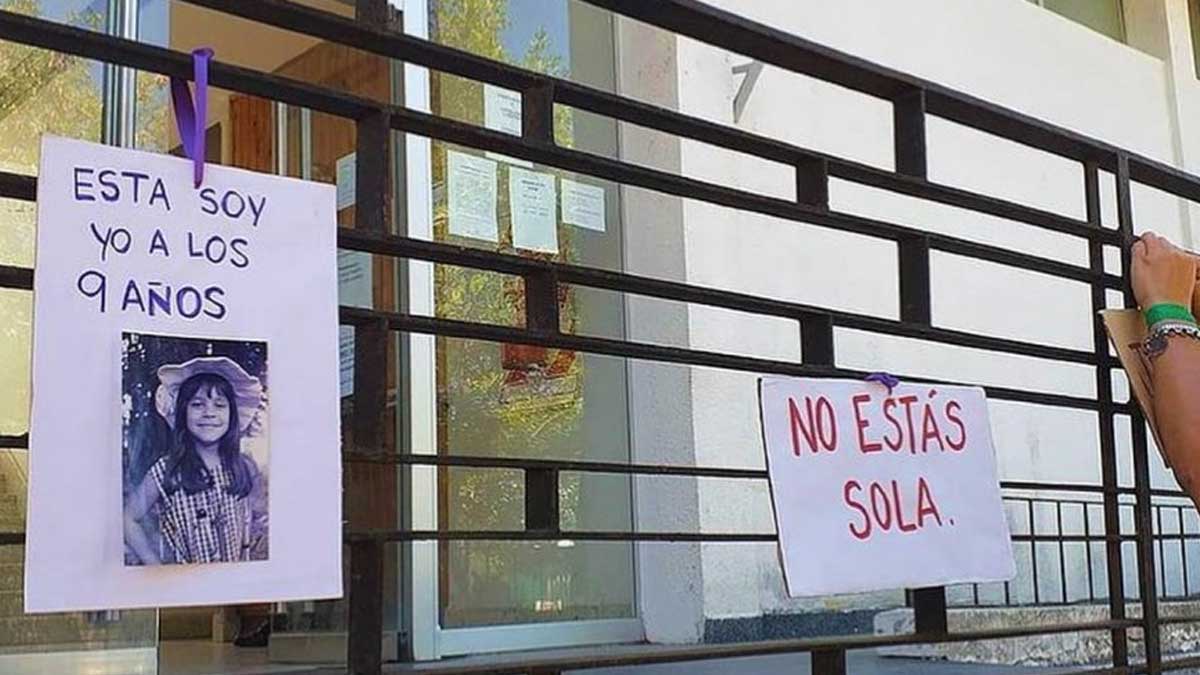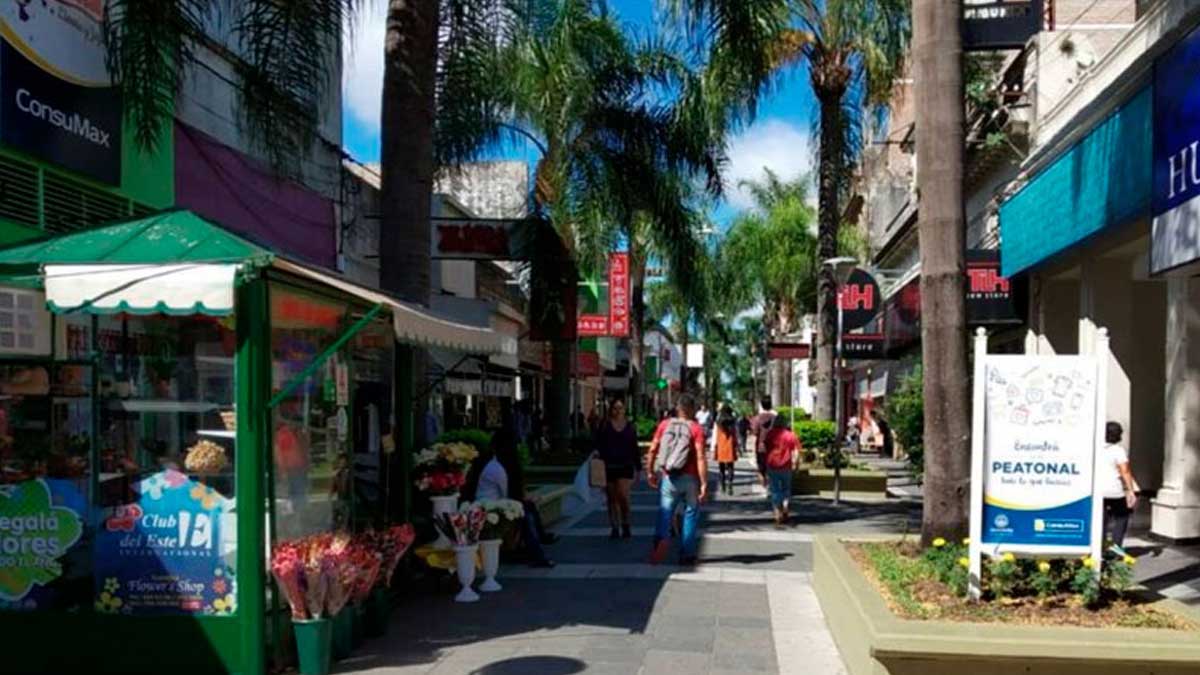
CHILD ABUSE: Two Jehovah’s Witnesses Nearly In Prison
ENTRE RÍOS – In 2021, Pedro Matías Vargas and Vito Luciano Panza, Jehovah’s Witnesses of Santa Elena, were convicted for the crime of sexual abuse
![]()
JEHOVAH’S
WITNESSES
10 Years revealing secrets because there is no excuse for secrecy in religion – w1997 June 1; Dan 2:47; Matt 10:26; Mark 4:22; Luke 12:2; Acts 4:19, 20.

ENTRE RÍOS – In 2021, Pedro Matías Vargas and Vito Luciano Panza, Jehovah’s Witnesses of Santa Elena, were convicted for the crime of sexual abuse of two minors. The Superior Court of the Criminal Justice Chamber of Entre Ríos has rejected an appeal of the conviction presented by the religious group’s lawyer.
Vargas and Panza were sentenced on March 19, 2021 by the Paraná Court of Appeals. Vargas received 12 years in prison for the crime of extreme sexual abuse aggravated by his position as a guardian and a minister of worship; and repeated simple sexual abuse, in its modality aggravated by his position as a minister of worship. Meanwhile, Panza was declared the perpetrator of the crime of extreme sexual abuse and it was decided to send the file to the Criminal Court for Boys, Girls and Adolescents of La Paz so that it proceeds with the integration of the sentence. That is to say, it will be a Juvenile Court that must establish the amount of the penalty because he was a punishable minor at the time of the crime.
The abusers’ defense appealed the sentence, going all the way to the highest provincial court, which on April 24 of this year rejected the appeal. That decision put an end to the claim of Jehovah’s Witnesses at the provincial level, but the first instance sentence has not yet begun to operate because they have yet another judicial level to appeal to: the National Supreme Court of Justice.
Belén Sánchez is the victim/survivor who made it possible to bring Vargas and Panza to trial. Her story broke on April 25, 2017, when she made a post on Facebook in which she pointed out the abusers. She was 21 years old at the time and the events she denounced occurred when she was between 8 and 11 years old. Thanks to her posting evidence, another victim also broke the silence and appeared in court.
Six years after that publication on social media, Belén spoke with UNO and reflected on the path for Justice that she undertook and the vicissitudes of an unequal struggle, in which the victim, as in her case, had to expose herself to be heard.
Currently, at the age of 27, Belén works and studies Occupational Health & Safety at an institute in the province of Buenos Aires. Far from her native Santa Elena, she affirms that she got ahead because of the many people who supported her: family, friends, neighbors, acquaintances, feminist groups, as well as her lawyer Valeria Burkhard; María Elena González, former teacher and former municipal official in the Women’s area; and the prosecutor Facundo Barbosa.
“I made the case visible from day one with the intention of raising awareness and also to save other children. Although it was very painful for me, I learned to live with the pain. Feminism and people who believed me helped me”, says the young woman. And she adds: “Many girls were encouraged to speak after my case. That is what gives me strength. Being the voice of those who could not speak.”
Belén is aware that the situation of abuse and the judicial process that she had to go through left marks on her. They are psychological and emotional marks that she tries to put into words. “I am like a glass about to break, but that does not break completely, but has its marks. Sometimes everything overwhelms me. It is sad to live in my shoes. The things that I have to face in another way I face with blows. Currently, I tell my story because there are girls who, when listening to me, can talk about something that they have not even told their parents”, she reflects and reveals that she suffers from post-traumatic stress.
This suffering has a cause: the abuses and a long re-victimizing judicial process. “What I question about Justice is why you have to expose yourself so much. You have to face the pain because otherwise things do not work out. It is sad that this happens. Justice should act firmly in all cases. The victims should not have to expose themselves so much for you to believe them. I had to go through a lot,” she says.
On the way to reaching a conviction, she suffered setbacks, accusations and disagreements from some people who questioned her story. “At one point I thought that life had no meaning. But later I understood that I did many things that helped other people. I had not seen that in myself,” she says.
“Now that I live far from my town I try to look forward. I came from Santa Elena because I didn’t want to see their faces (because of the abusers) and also because there was no work. In the town it is also the case that there are people who are not very tactful with what they ask. Just as I was applauded by many people, I was also pointed out as a person who did not do things well. There were people who told my friends not to interfere. I had to leave that behind,” she says from a distance.
When bad memories overwhelm her, Belén found a way to feel better, a kind of key for that marked crystal to rebuild herself. “Whenever I get panic attacks I remember the song ‘I come to offer my heart’, by Fito Páez. The lyrics say ‘who said that all is lost, I come to offer my heart’. I think I have the heart broken but I still helped other people,” she confides.
The song is a hymn for Belén. A hymn that expresses her feelings: to help other causes obtain justice. When the occasion presents itself, she participates in marches, accompanies victims and listens to the stories of women who did not dare to cross the threshold of silence.
“I was able to be the voice of the girls who could not speak what these people did to them. I am grateful to the Justice that listened to me and believed, because not all girls have that opportunity. We must appreciate that, despite the slowness, the conviction is reached. I understand the girls who did not speak, because it is hard to see the faces of the abusers in court.”
At the end, she refers that in the trial that was held against her abusers, Vargas and Panza, something changed: “In the trial there were all the people who loved me and I was not afraid. The fear broke. From the day of the sentences the fear passed to them”.
Matías Vargas and Vito Panza are convicted of child abuse but they currently remain free. In 2022, they had two rulings against them. Again, this year they had another ruling against them. One of their victims tells her story.
Originally published in Spanish on Uno Entre Ríos on May 15, 2023 by Gonzalo Núñez. Translated by Jason Wynne
Valeria Burkhard, lawyer for Belén, highlights that having worked on the case meant a before and after in her profession. “It has been a different experience that has led me to other areas of Law, because I have always worked in family cases,” she explains, adding that “it was very empowering to accompany Belén, listen to her story and see how she responded when she had to tell these situations”.
She indicates that one of the difficulties she encountered was gathering information in the religious field: “Jehovah’s Witnesses are a very closed religion and it was difficult to reach them. It was a complicated job that was done slowly and it paid off. We were able to obtain important evidence for the cause”.
“I am satisfied with the work carried out. Although the sentence is not yet final, we have managed to achieve good results. A conviction in the first instance and confirmation in a Criminal Appeal. Now we are waiting for notification of the result from the Superior Court of Justice to see if the sentence is definitively final, so that the sentence can begin to be served,” she stresses.
The lawyer from Santa Elena maintains that the times of justice, in cases like these, are not what the victims need. “The time that has passed since the first sentence makes the victims feel frustrated, because they have had a favorable sentence but to this day these convicts continue to walk free as if they did not commit crimes,” she says.
However, she is confident that the final sentence will arrive: “We have faith and hope that the sentence will be final and that these people will serve their sentence accordingly.”
On March 19, 2021, the Paraná Court of Appeals sentenced Vargas to 12 years in prison for the crime of extreme sexual abuse aggravated by his position as guardian and minister of worship; repeated simple sexual abuse, in its modality aggravated by his position as minister of worship.
Meanwhile, he declared Vito Luciano Panza the author of the crime of extreme sexual abuse and forwarded testimonies to the competent Criminal Court for Boys, Girls and Adolescents, so that it proceeds with implementation of the sentence. The trial was held in the Courts of La Paz. Relatives of the victims, friends and authorities of the Jehovah’s Witnesses were among those who appeared as witnesses.
Both convicts are currently living in Villa Mercedes, General Pedernera department in the province of San Luis.
The abuses were perpetrated at the victims’ homes, where they would come to preach. One of the victims told the court that she also suffered abuse in the Kingdom Hall (church) of Jehovah’s Witnesses in Santa Elena and in a van belonging to an authority of the congregation, when they were leaving the Kingdom Hall.
The Jehovah’s Witnesses’ lawyer has been appealing the sentence in different instances and has obtained adverse rulings. The Chamber of Criminal Appeal confirmed the sentences on November 10, 2022 and on December 29 rejected an extraordinary appeal with which they intended to reach the Criminal Chamber of the Superior Court of Justice (SCJ).
They appealed again against this last ruling, filing an appeal directly before the Criminal Chamber of the SCJ. The answer came on April 24 of this year, when the members Claudia Mizawak, Daniel Carubia and Miguel Giorgio rejected the proposal.
“The extraordinary challenge filed has been correctly denied, that the resolution that is being attacked does not contain any defects, and that the evidence before us in the complaint today on the part of the complainant is a mere disagreement with the decision adopted – particulars that are of their own interest- which cannot have the purpose of opening a new ordinary instance of review,” said the judges in the ruling.
Thus, the provincial instance is exhausted and the two aggressors of sexual abuse have only the National Supreme Court of Justice left to resort to for a favorable ruling. A new adverse ruling will eventually put them in jail.
Authority / Authorities
The authority or authorities within Jehovah’s Witnesses are all those who are appointed as elders. This includes congregation elders, circuit overseers, branch office service desk, branch committee members, and the Governing Body of Jehovah’s Witnesses. When Jehovah’s Witnesses state that “Elders are directed to immediately report an allegation of child sexual abuse to authorities, even if there is only one complainant”, they mean that elders are required to immediately report the allegation to the branch office service desk.
Simple sexual abuse
Simple sexual abuse is abusive sexual behavior against a person under the age of thirteen or carried out with violence, threat, coercive or intimidating abuse of a relationship of dependency, authority, or power, or taking advantage of the fact that the victim for any reason has not been able to freely consent to the action.

ENTRE RÍOS – In 2021, Pedro Matías Vargas and Vito Luciano Panza, Jehovah’s Witnesses of Santa Elena, were convicted for the crime of sexual abuse

The Trial Court of Appeals of Paraná, made up of Carolina Castagno, Gustavo Pimentel and Elvio Garzón, decided this Friday to declare Pedro Matías Vargas

Elders of a congregation of Jehovah’s Witnesses in Santa Elena opted for silence and secrecy in a trial that followed Matías Vargas and Luciano Vito